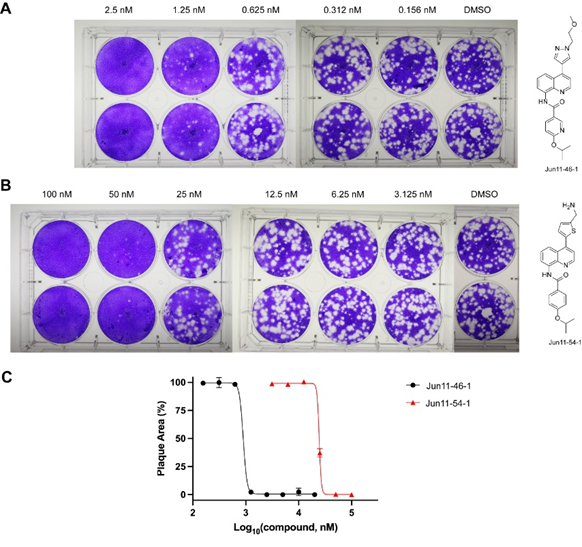

Plaque assay results of Jun11-46-1 and Jun11-54-1 against EV-D68 US/MO/14-18947.
Invention Summary:
Enterovirus D68 (EV-D68) is an RNA virus that mainly affects children and results in moderate to severe respiratory illness, with the most extreme cases resulting in muscle weakness, paralysis, and death. Currently, there are no antivirals or vaccines against EV-D68 as available treatments for patients infected with this virus.
Rutgers researchers have developed a series of EV-D68 capsid-specific inhibitors that target the viral capsid protein VP1. Upon binding to VP1, this novel antiviral inhibitor stabilizes the capsid protein, thereby preventing uncoating and subsequent replication of the virus. The mechanism of action and antiviral efficacy have been validated, including plaque assay. This assay results demonstrate that both Jun11-46-1 and Jun11-54-1 were able to significantly decrease the number of plaque-forming units, demonstrating efficacy in preventing EV-D68 viral infectivity. Currently, in vivo pharmacokinetics are being studied and optimized.
Market Applications:
- Antiviral drug against enterovirus (EV-D68)
Advantages:
- Efficacious targeting of multiple EV-D68 strains
- High potency
- Small molecule inhibitor
Intellectual Property & Development Status: PCT patent application filed, patent pending. Available for licensing and/or research collaboration. For any business development and other collaborative partnerships contact marketingbd@research.rutgers.edu